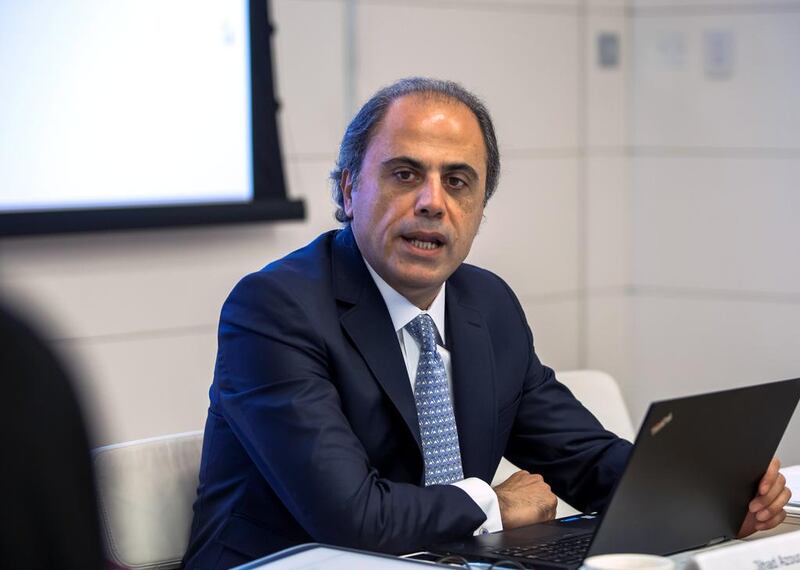The UAE and Saudi Arabia are moving in the right direction with regards to economic reforms, but Oman and Bahrain may need to speed up their pace because of their lower financial buffers, an IMF official said.
The UAE, the most diversified economy in the Arabian Gulf region and the second largest in the Arab World, is implementing a slew of reforms to help tame a fiscal deficit exacerbated by low oil prices. These reforms include the removal of energy subsidies, introduction of excise taxes this year and value added tax next year and lower spending. All these steps are paying off, according to Jihad Azour, the Director of the IMF's Middle East and Central Asia Department.
__________________________
Read more:
[ IMF forecasts economic recovery for Middle East economies in 2018 ]
[ IMF leader: we must protect global growth ]
_________________________
“The diversity in the UAE economy allows the UAE to better adjust and progressively to benefit from the global (economic) recovery which in fact would require (it) to pursue on some of the reforms they have been introducing in terms of improving their business environment, (and) in terms of improving the competitiveness of their services,” said Mr Azour in a press briefing in Washington.
The UAE’s cumulative fiscal deficits could reach US$89 billion over the 2017‒2022 period, the IMF has projected.
Meanwhile, Saudi Arabia, the largest Arab economy and the world’s biggest oil exporter, is on the right path as it slows down its fiscal consolidation efforts which hurt growth in the first half of this year.
The IMF had advised the Saudi authorities to not rush to balance the budget by 2019 and they are taking heed. The IMF is predicting the deficit will be balanced by 2022.
Saudi Finance Minister Mohammed Al Jadaan told Bloomberg that the kingdom may cut energy subsidies more gradually and take longer to balance its budget.
“In the case of Saudi, the adjustment of the fiscal (front) can be phased in a way that would allow them some flexibility and they are in the right direction,” said Mr Azour. “The set of reforms that they are implementing and planning in terms of fiscal consolidation will help them progressively to reduce their level of budget deficit and reach a situation of balancing their budget in the years to come.”
In Oman and Bahrain, reforms need to gain pace to cope with the low oil price environment, given their low level of financial buffers such as foreign assets compared with their other Gulf peers.
“When it come to Oman and Bahrain, like the other GCC countries, (they) are implementing fiscal adjustment in order to reduce the level of budget deficit,” said Mr Azour. “The level of buffers in Oman and Bahrain are less than the other countries and fiscal adjustment for them is to be continued and in certain cases to be accelerated.”





